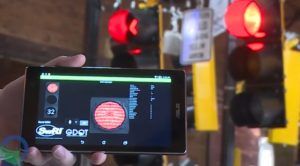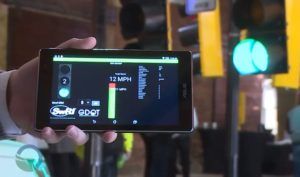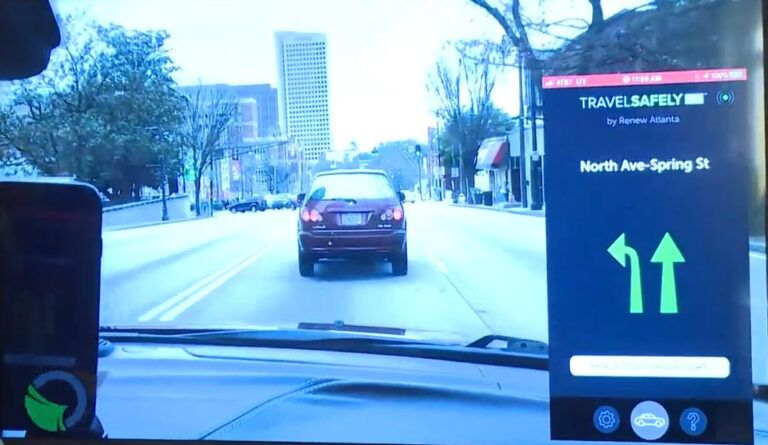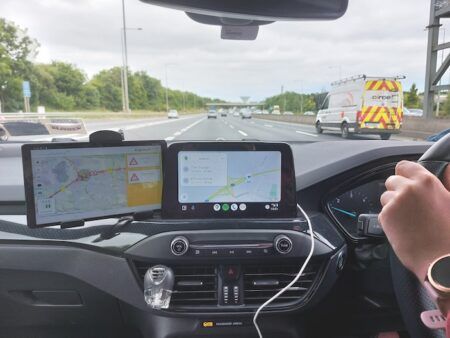Georgia is preparing its intelligent transportation systems (ITS) infrastructure for the imminent arrival of connected vehicle (CV) technology that will improve road safety, reduce commute times, and enhance traffic management.
The Georgia Department of Transportation (GDOT) has announced the imminent release of a request for proposals from private sector partners to provide a turnkey CV solution for principal roadways in the metropolitan Atlanta region. As car manufacturers begin to employ CV technology in their vehicles, GDOT is moving one step closer to ensuring that no matter the vehicle technology, the state’s transportation infrastructure will be prepared. Georgia is already underway in pursuing a large active CV infrastructure deployment, with more than 400 locations across metro Atlanta currently connected with innovative new CV technology. In a speech on to transportation professionals last month, Governor Brian Kemp announced a Regional Connected Vehicle partnership between Georgia DOT and the Atlanta Regional Commission (ARC) to connect an additional 1,000 locations with CV technology.
The cost of the initial phase of the project is US$10m, with US$8m coming from federal sources and a US$2m match from numerous local governments and Community Improvement Districts. The funding supports the implementation of CV projects that support applications such as transit signal priority and emergency vehicle pre-emption at traffic lights. There are currently two types of technologies used in CVs: dedicated short-range communications (DSRC) and cellular vehicle-to-everything (C-V2X). The state’s existing 400 CV locations use DSRC technology, but the 1,000 new locations will deploy both DSRC and C-V2X communication systems.
Many recent announcements have been made by car manufacturers signalling their intent to begin deploying this technology as a standard feature in upcoming model lines. GDOT has specifically been in discussion with Ford Motor Company regarding their specific plans for a connected vehicle future beginning in 2022. GDOT notes that while consumers may be accustomed to increased technology in their cars, such as back up cameras, the new CV deployments will specifically allow the infrastructure itself to directly ‘talk back’ to their vehicles. The agency has safety as a primary goal of the deployment, with CV technology anticipated to aid motorists in actively avoiding crashes and other incidents.

“Georgia DOT is leveraging innovative strategies to enhance transportation that helps improve the quality of life of hard-working Georgians in all parts of our state,” said Kemp. “We work hard to continue to bring private and public sectors together to build relationships. Working with regional partners ensures the seamless deployment of this technology at the local level.”
Chairman of the Atlanta Regional Commission, Kerry Armstrong, commented, “The regional connected vehicle program will help boost safety and mobility across metro Atlanta. It’s especially encouraging to see this program develop as a truly collaborative effort involving not just ARC and GDOT, but also local governments and CIDs.”
GDOT’s state traffic engineer, Andrew Heath, noted, “Many car manufacturers are making plans to begin mass implementation of connected vehicle technology. It is essential that Georgia fully prepares our infrastructure to be ready for this connected future.”
Jovan Zagajac, technology manager for Ford, added, “As we begin to roll out suitably equipped vehicles beginning in 2022, the efforts underway in Georgia, will place them at the front of the line in realizing the safety and mobility benefits that connected vehicle technology can provide.”





